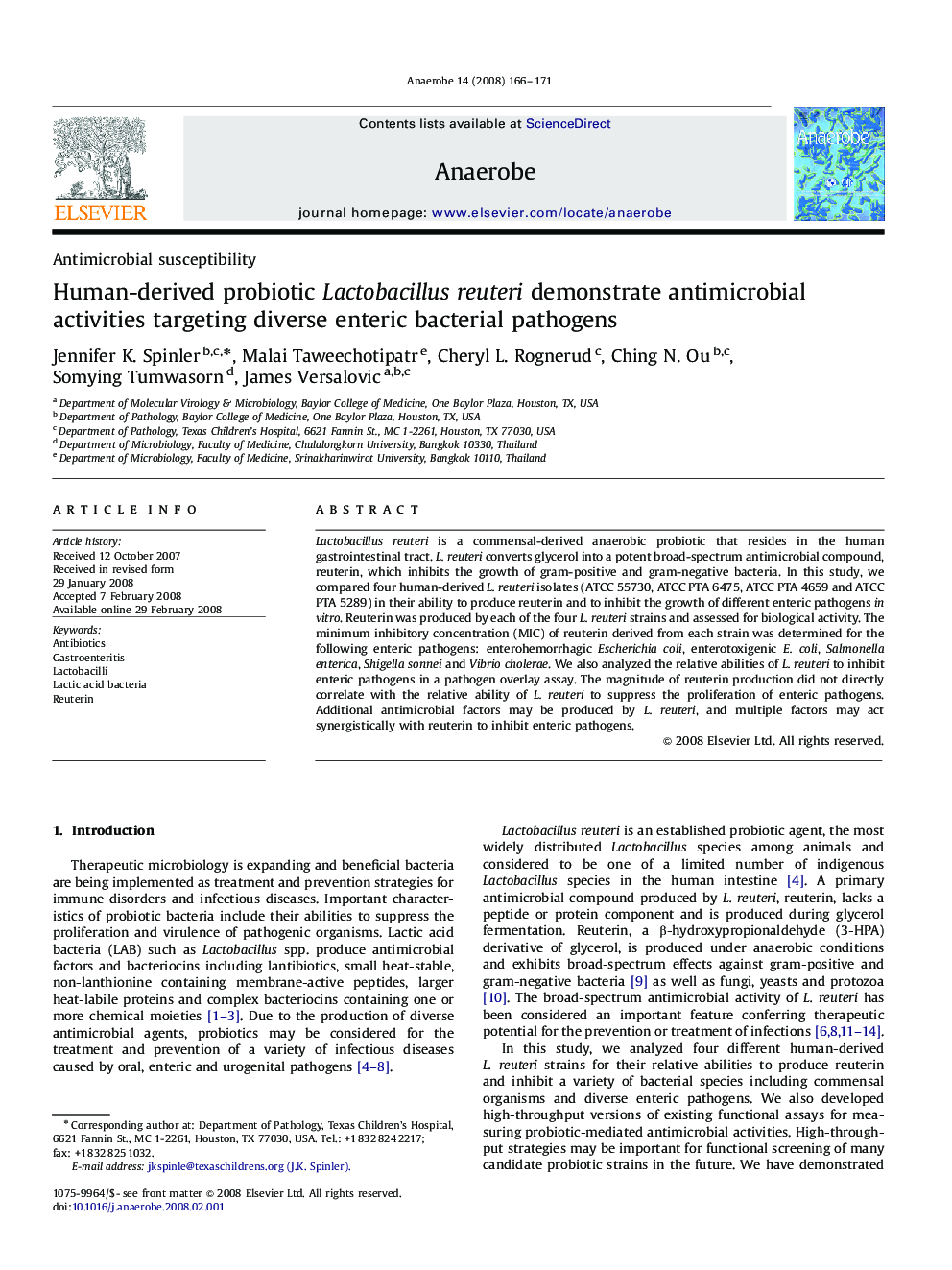| Article ID | Journal | Published Year | Pages | File Type |
|---|---|---|---|---|
| 3395761 | Anaerobe | 2008 | 6 Pages |
Lactobacillus reuteri is a commensal-derived anaerobic probiotic that resides in the human gastrointestinal tract. L. reuteri converts glycerol into a potent broad-spectrum antimicrobial compound, reuterin, which inhibits the growth of gram-positive and gram-negative bacteria. In this study, we compared four human-derived L. reuteri isolates (ATCC 55730, ATCC PTA 6475, ATCC PTA 4659 and ATCC PTA 5289) in their ability to produce reuterin and to inhibit the growth of different enteric pathogens in vitro. Reuterin was produced by each of the four L. reuteri strains and assessed for biological activity. The minimum inhibitory concentration (MIC) of reuterin derived from each strain was determined for the following enteric pathogens: enterohemorrhagic Escherichia coli, enterotoxigenic E. coli, Salmonella enterica, Shigella sonnei and Vibrio cholerae. We also analyzed the relative abilities of L. reuteri to inhibit enteric pathogens in a pathogen overlay assay. The magnitude of reuterin production did not directly correlate with the relative ability of L. reuteri to suppress the proliferation of enteric pathogens. Additional antimicrobial factors may be produced by L. reuteri, and multiple factors may act synergistically with reuterin to inhibit enteric pathogens.
